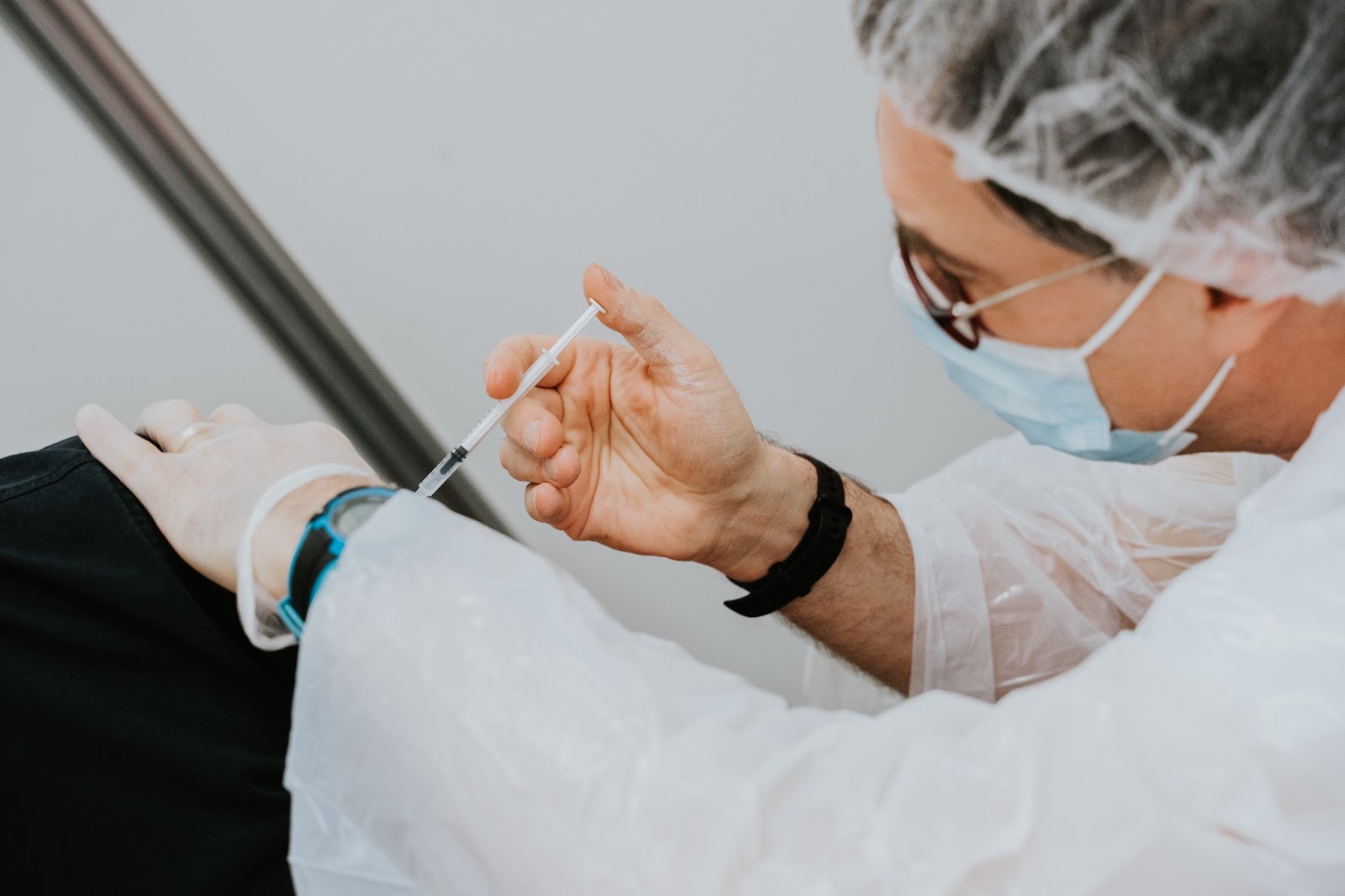
Lauren Dempsey, MS in Biomedicine and Law, RN, FISM News
[elfsight_social_share_buttons id=”1″]
This week Moderna announced in a press release that the company is seeking emergency use authorization for an additional booster shot. Moderna’s request for authorization of a second booster shot for individuals aged 18 and older and those that are immunocompromised means that the pharmaceutical giant is now recommending a fourth dose of the COVID-19 vaccines to provide protection against SARS-CoV-2 infection and variants. The composition of the vaccine has not changed. The booster can be administered to anyone who has received the initial vaccination series and booster shots from any approved COVID-19 vaccine manufacturer.
Moderna has stated that they are submitting this request in hopes of providing “flexibility for the US Centers for Disease Control and Prevention and healthcare providers to determine the appropriate use of an additional booster dose of mRNA-1273, including for those at higher risk of COVID-19 due to age or comorbidities.” Stephen Hoge, Moderna’s president, previously had said that only the elderly and immunocompromised would need a fourth dose of the vaccine. This announcement comes only days after Pfizer-BioNTech also requested authorization for a second booster shot for individuals aged 65 and older.
Pfizer CEO Albert Bourla told CBS’ ‘Face the Nation’ that this fourth dose will be crucial in preventing infection by boosting the immune system, especially in response to variants of the virus. Experts are predicting that a new wave of COVID-19 infections are coming, and the best method of prevention is vaccination. However, evidence from research indicates that the vaccines and subsequent booster shots lack the ability to confer long lasting immunity, especially in the face of variants that have the ability to evade vaccines.
New research evaluating VARES reports of severe injury and death has raised questions about the safety and effectiveness of the mRNA vaccines. A recent study published in The Lancet evaluated 340,000 reports of adverse events reported to VARES and v-safe out of 299 million doses administered. Researchers evaluated data over a six-month period from December 2020 through June 2021 and analyzed results from the first 7 days post-vaccination. They discovered that 6.6% of reports were considered serious, resulting in “inpatient hospitalization, prolongation of hospitalizations, permanent disability, life-threatening illness, congenital anomaly or birth defect,” and 1.3% of deaths could be attributed to the vaccine.
According to the study, of the deaths that were analyzed, 46.7% followed the Pfizer-BioNTech vaccine and 53.3% occurred after Moderna’s COVID-19 vaccine, with the average age of death being 76 years old. Death generally occurred within 10 days of being vaccinated with 11.4% reported on day 1 and 7.6% on day 2. Yet the CDC has largely side-stepped these findings and are focused on promoting the results of the study indicating that the majority of people will have no issues post-vaccination, leaving the question of who is at risk for having vaccine complications unanswered and unaddressed.
The CDC director Rochelle Walensky said that the agency is working with the FDA to determine the need for a fourth dose as well as how the agency could “not only purchase those but then deliver them, administer them, get out to those communities,” adding “those take resources.” The Biden administration has asked Congress for an additional $22.5 billion to provide a response and relief against COVID-19, stating that the demands caused by Delta and Omicron have “largely exhausted existing funds.”
